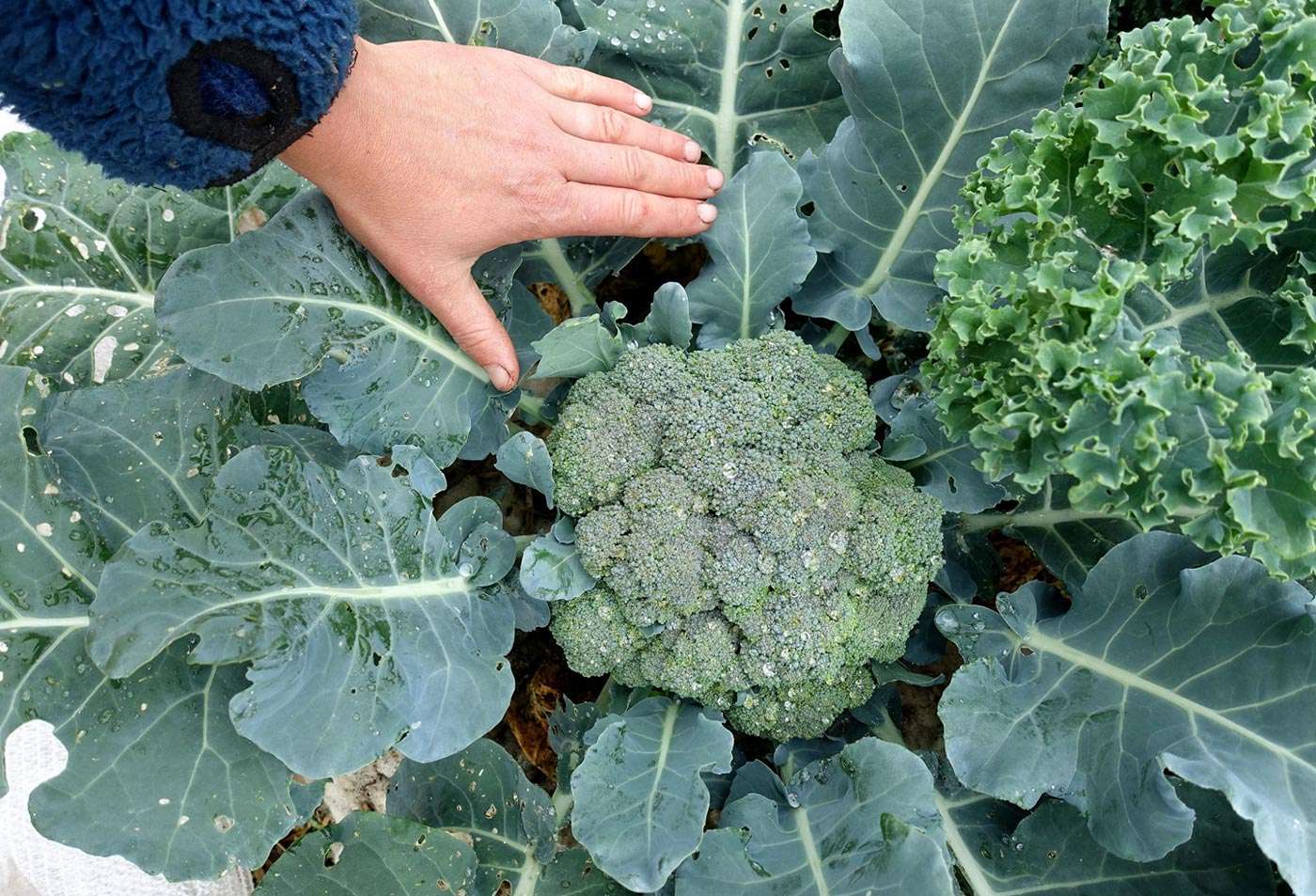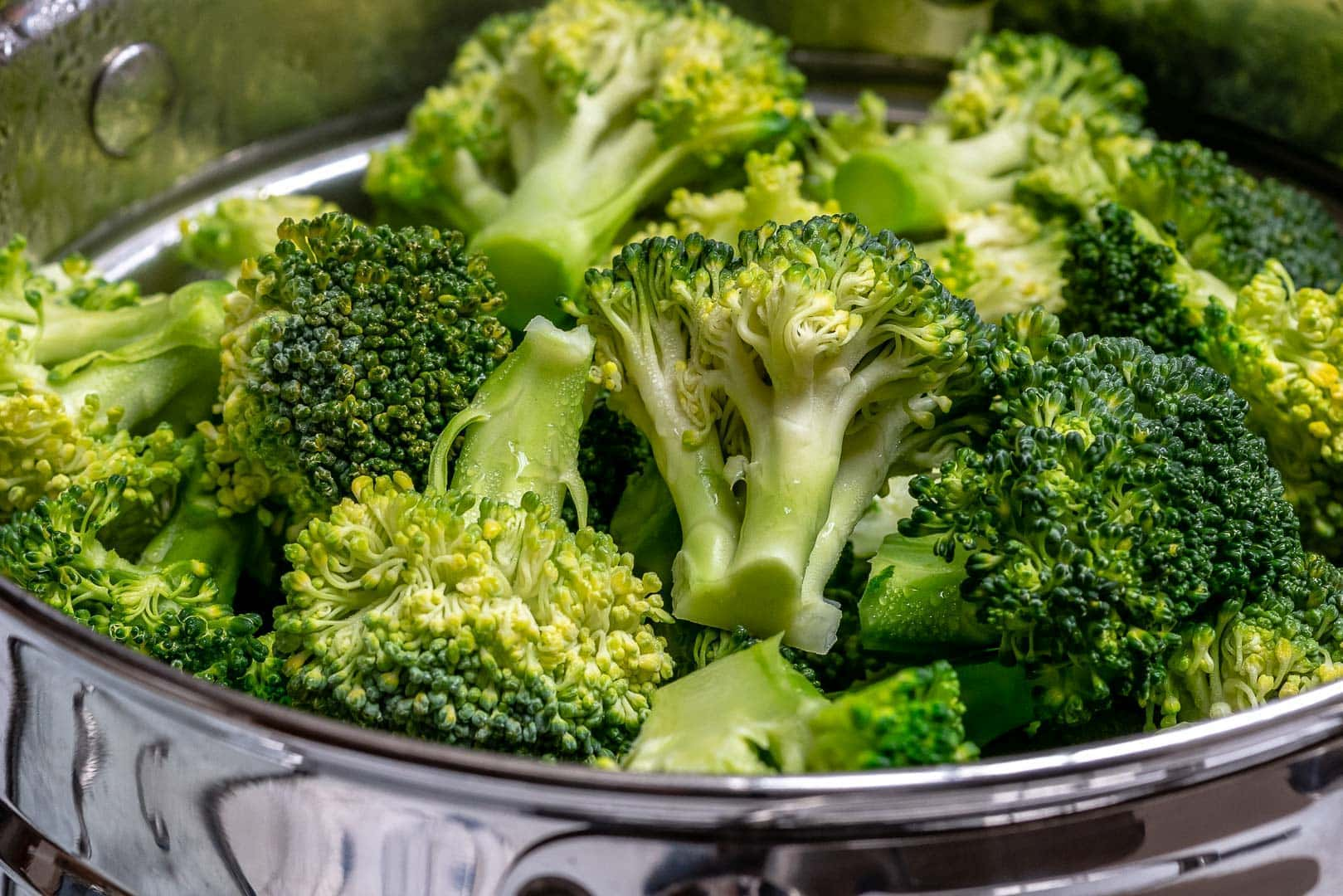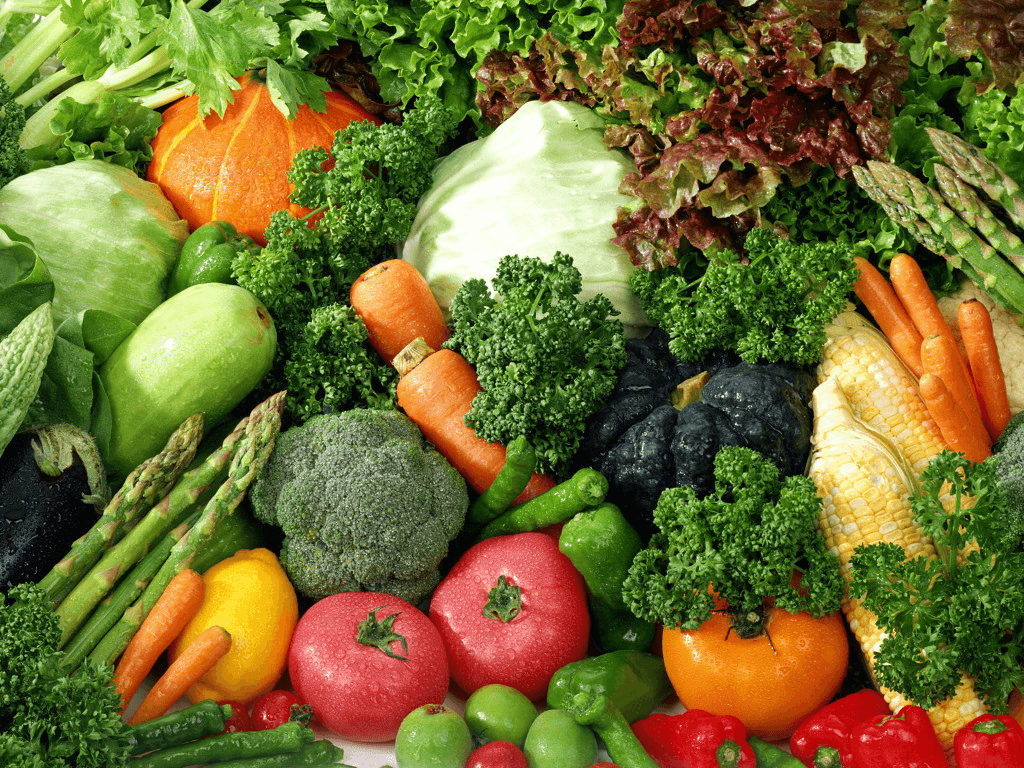Top 14 Health Benefits of Broccoli
Top 14 Health Benefits of Broccoli
Broccoli is a nutrient-rich vegetable that may enhance your health in a variety of ways, such as by reducing inflammation, improving blood sugar control, boosting immunity and promoting heart health. However, keep in mind that good health doesn’t come from any single food. Broccoli is merely one of numerous healthy foods that can contribute to optimal health.
Broccoli is a green vegetable that vaguely resembles a miniature tree. It belongs to the plant species known as Brassica oleracea. Broccoli is a nutritional powerhouse full of vitamins, minerals, fiber and antioxidants. Here are the top 14 health benefits of broccoli.

1. Packed With Vitamins, Minerals and Bioactive Compounds
One of broccoli’s biggest advantages is its nutrient content. It’s loaded with a wide array of vitamins, minerals, fiber and other bioactive compounds. One cup (91 grams) of raw broccoli packs:
- Carbs: 6 grams
- Protein: 2.6 gram
- Fat: 0.3 grams
- Fiber: 2.4 grams
- Vitamin C: 135% of the RDI
- Vitamin A: 11% of the RDI
- Vitamin K: 116% of the RDI
- Vitamin B9 (Folate): 14% of the RDI
- Potassium: 8% of the RDI
- Phosphorus: 6% of the RDI
- Selenium: 3% of the RDI
Broccoli can be eaten cooked or raw — both are perfectly healthy but provide different nutrient profiles.
Different cooking methods, such as boiling, microwaving, stir-frying and steaming, alter the vegetable’s nutrient composition, particularly reducing vitamin C, as well as soluble protein and sugar. Steaming appears to have the fewest negative effects. Still, raw or cooked, broccoli is an excellent source of vitamin C. Just half a cup (78 grams) of cooked broccoli provides 84% of the reference daily intake (RDI) — more than one-half orange can offer .
2. Contains Potent Antioxidants That Offer Health-Protective Effects
The antioxidant content of broccoli may be one of its main boons for human health. Antioxidants are molecules that inhibit or neutralize cell damage caused by free radicals. This can lead to reduced inflammation and an overall health-protective effect.
Broccoli has high levels of glucoraphanin, a compound that is converted into a potent antioxidant called sulforaphane during digestion. Test-tube and animal studies indicate that sulforaphane may offer multiple health benefits, including reduced blood sugar, cholesterol levels, oxidative stress and chronic disease development. However, more research is needed to understand its role in humans.
Broccoli also contains measurable amounts of the antioxidants lutein and zeaxanthin, which may prevent oxidative stress and cellular damage in your eyes.
3. Bioactive Compounds May Contribute to Reduced Inflammation
Broccoli contains various bioactive compounds that have been shown to reduce inflammation in your body’s tissues. It’s theorized that multiple compounds work synergistically to support this effect, though some seem to work individually as well.
And a flavonoid in broccoli as Kaempferol, demonstrates strong anti-inflammatory capacity in both animal and test - tube studies. A small human study in tobacco smokers also revealed that eating broccoli led to a significant reduction in markers of inflammation.
While these results are promising, more research is needed to better understand how broccoli consumption affects inflammation in humans.

4. May Protect Against Certain Types of Cancer
Cruciferous vegetables, such as broccoli, contain various bioactive compounds that may reduce cell damage caused by certain chronic diseases.
Multiple small studies have shown that eating cruciferous vegetables may protect against certain types of cancer, namely:
- Breast
- Prostate
- Gastric/stomach
- Colorectal
- Renal/kidney
- Bladder
Though this data is encouraging, it isn’t strong enough to make definitive health claims regarding broccoli’s role in cancer treatment or prevention. Ultimately, more human research is needed to determine the relationship between cruciferous vegetables and cancer prevention.
5. Antioxidants and Fiber May Aid Blood Sugar Control
Eating broccoli may support better blood sugar control in people with diabetes. Although the exact mechanism is unknown, it may be related to broccoli’s antioxidant content.
In one human study that showed significantly decreased insulin resistance in people with type 2 diabetes who consumed broccoli sprouts daily for one month.
More interestingly, an animal study revealed decreased blood sugar in addition to reduced pancreatic cell damage in diabetic rats fed broccoli extract.
Broccoli is also a good source of fiber. Some research indicates that higher intake of dietary fiber is associated with lower blood sugar and improved diabetic control.
6. May Support Heart Health in a Variety of Ways
Several studies indicate that broccoli may support heart health in a variety of ways. Elevated “bad” LDL cholesterol and triglyceride levels are known to be major risk factors for heart disease. Broccoli may play a role in improving these markers.
One study noticed significantly reduced triglycerides and “bad” LDL cholesterol, as well as increased “good” HDL cholesterol levels in people who were treated with a powdered broccoli sprout supplement.
Some research also supports the notion that specific antioxidants in broccoli may reduce your overall risk of heart attack. A study in mice fed broccoli sprouts revealed a potentially protective effect against cell death and oxidative stress in heart tissue following a cardiac arrest.
Additionally, higher intake of fiber-rich foods like broccoli is associated with a reduced risk of heart disease.
7. Promotes Healthy Digestion and Reduced Constipation
Broccoli is rich in fiber and antioxidants — both of which may support healthy bowel function and digestive health. Bowel regularity and a strong community of healthy bacteria within your colon are two vital components to digestive health. Eating fiber- and antioxidant-rich foods like broccoli may play a role in maintaining healthy gut function.
A study in mice on a broccoli diet found reduced levels of inflammation in the colon, as well as favorable changes in gut bacteria. A recent human study indicated that people who ate broccoli were able to defecate more easily than individuals in the control group.
Though these results are promising, more human research is needed to better understand how broccoli affects digestive health.

8. May Slow Mental Decline and Support Healthy Brain Function
Some of the nutrients and bioactive compounds in broccoli may slow mental decline and support healthy brain and nervous tissue function. A study in 960 older adults revealed that one serving per day of dark green vegetables, such as broccoli, may help resist mental decline associated with aging.
Additionally, an animal study showed that mice treated with kaempferol — a compound in broccoli — had lowered incidence of brain injury and reduced inflammation of neural tissue following a stroke-like event.
Sulforaphane is another potent bioactive compound present in broccoli with the potential to support brain function after an event of reduced oxygenation to the brain. In some studies, mice treated with sulforaphane showed significant brain tissue recovery and reduced neural inflammation following brain injury or toxic exposure.
Most current research evaluating the effect of bioactive compounds found in broccoli on brain health are restricted to animal studies. More research is needed to determine how these compounds support neurological function in humans.
9. May Help Slow the Aging Process
The process of aging is largely attributed to oxidative stress and reduced metabolic function over the course of your lifespan. Though aging is an unavoidable natural process, diet quality is thought to be a major player in determining genetic expression and development of age-related diseases.
Research shows that sulforaphane, a key bioactive compound in broccoli, may have the capacity to slow the biochemical process of aging by increasing the expression of antioxidant genes. Still, more human research is needed to determine a cause-and-effect relationship between dietary intake of broccoli and its effect on the aging process.
10. Vitamin C Content Supports a Healthy Immune System
The human immune system is complex and requires a multitude of nutrients to function properly. Vitamin C is arguably the most essential nutrient for immune function, and broccoli is loaded with it.
Research indicates that vitamin C plays a role in both the prevention and treatment of various illnesses. A daily intake of 100–200 mg of vitamin C seems to be sufficient to prevent certain infections.
Typically, vitamin C is associated with oranges or strawberries, but broccoli definitely deserves credit — a half-cup (78-gram) serving of cooked broccoli boasts 84% of the RDI for this vitamin.
11. May Support Dental and Oral Health
Broccoli contains a wide array of nutrients, some of which are known to support oral health and prevent dental diseases. Broccoli is a good source of vitamin C and calcium, two nutrients associated with a decreased risk of periodontal disease. Kaempferol, a flavonoid found in broccoli, may also play a role in preventing periodontitis.
Additional research indicates that the sulforaphane found in broccoli may reduce your risk of oral cancers. Some sources claim that eating raw broccoli can help manually remove plaque and whiten your teeth. However, no rigorous scientific data exists to support this.
Ultimately, more human research is needed to better understand broccoli’s role in maintaining a healthy mouth.

12. May Promote Healthy Bones and Joints
Many of the nutrients found in broccoli are known to support healthy bones and may prevent bone-related disorders. Broccoli is a good source of vitamin K and calcium, two vital nutrients for maintaining strong, healthy bones.
It also contains phosphorus, zinc and vitamins A and C, which are necessary for healthy bones as well. A test-tube study indicates that the sulforaphane found in broccoli may aid in preventing osteoarthritis. However, more research is needed to draw any definitive conclusions on its role in humans.
13. Nutrient Content May Support a Healthy Pregnancy
Your body requires a multitude of vitamins, minerals and protein during pregnancy to support both baby and mother. Broccoli is a good source of B vitamins — namely B9, also known as folate.
Folate is an essential nutrient for the development of the fetal brain and spinal cord. Regular consumption of folate-rich foods like broccoli can help ensure healthy pregnancy outcomes.
Additionally, some animal studies indicate that broccoli eaten by the mother may support healthier cognitive development of the newborn. More research is needed to better understand how broccoli and its bioactive compounds may support healthier pregnancy outcomes.
14. May Protect Your Skin From Sun Damage
Skin cancer is on the rise due in part to a damaged ozone layer and increased exposure to ultraviolet (UV) rays. Research indicates that bioactive compounds in broccoli may protect against UV radiation damage which leads to skin cancer.
In some animal studies, treatment with broccoli extract resulted in significantly reduced tumor growth and prevalence in mice with UV radiation-induced skin cancer.
Small human studies have achieved similar results, revealing a significant protective effect of broccoli extract against skin damage and cancer development after sun exposure. Ultimately, more research is needed to understand how broccoli and its bioactive components may protect skin from sun damage.
Compiled and penned by Crocus Media


